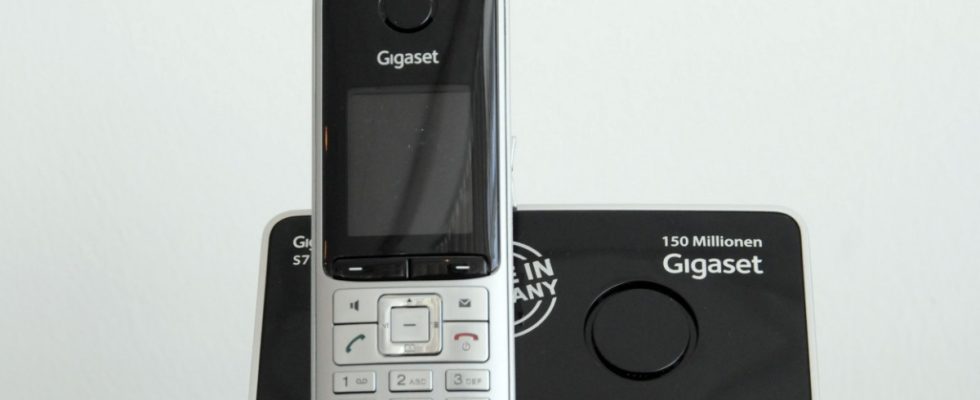In times when a lot of things are in flux, including people who are on the move most of the time and are reluctant to commit to anything, in such times landline telephones may really be an anachronism. The term alone: festival! Network! Phone. Very out of date, and it doesn’t help much if these landline telephones are cordless. The market for such devices has been declining for years. Agile people who like to keep things open and carry the internet around with them use smartphones. And no landline phones.
So it was probably only a matter of time before the telephone manufacturer Gigaset would be hit. The company from Bocholt in the Borken district of North Rhine-Westphalia most recently had 850 employees, and on Tuesday it announced that it would file for insolvency due to insolvency. Reason for the bankruptcy: An “unexpected and significant decline in sales in the second half of the year”, demand continued to decline, and at some point the money was gone. Because the manufacturer still primarily builds phones for those people who like to be at home and don’t use a smartphone. So for a few.
Smartphones? Apple and Samsung build them
It was the dependence on the old business model that drove the company into bankruptcy: Last year, landline telephones still accounted for a large part of the business; Smartphones, on the other hand, only work on the side. Which is of course not very surprising, because the smartphone market is dominated by the two giants Apple and Samsung. Gigaset? Also ran.
It was probably not a good sign from the start that the large Siemens group was no longer interested in this business. Everything had started so well. It was the early noughties, and communication and everything that had to do with it was chic, lucrative, was the future. Gas turbines? X-ray machines? Industrial automation? Oh no, telephones were the thing of the time. I communicate, therefore I am.
Siemens already failed because of the telephones
Siemens’ communications division grew and grew; with its landline, cordless and mobile phones and its large networks, it landed in the league of the world market leaders. Then at some point things went downhill because others were better and faster, especially Nokia. At Siemens, the old industrial tanker, people didn’t fully understand that the way people made telephone calls changed over time. And so the trend towards telephony over the Internet passed the people of Munich by.
Little by little, the company gave up its once celebrated communications division. The cell phones went to the Taiwanese electronics manufacturer BenQ, the communication networks to the Finnish rival Nokia, and the group sold the cordless phones with the Gigaset brand in 2008 to the investment company Arques, a financial investor from Lake Starnberg. A company that described itself at the time as a partner to large corporations “in the spin-off of peripheral activities that were no longer part of the core business.” Fringe activities, things had already gotten that far back then.
With the sale, “the chapter of communications technology at Siemens was closed,” said the then Siemens CFO. His name was Joe Kaeser, and years later, when he had long since become CEO, he completely split up the company and brought medical and energy technology onto the stock exchange. And Gigaset? After Siemens and Arques we continued; Since 2014, the manufacturer has been majority owned by the Chinese investor Sutong Pan, who holds the company through his investment company Goldin Financial Holdings. Now the company is to be restructured, which will not be easy. The new CEO Magnus Ekerot, who moved from Bosch to Gigaset at the beginning of the year, now spoke of an “unhealthy and one-sided business orientation”.

